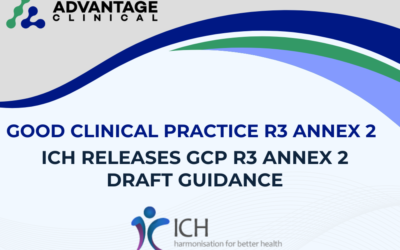The World Medical Association (WMA) has recently unveiled a significant revision to the Declaration of Helsinki, a cornerstone document guiding the ethical principles of medical research involving human participants. This 2024 update brings critical enhancements to ensure fairness, inclusion, and environmental responsibility in research. Here’s what you need to know about the latest changes compared to the previous version from 2013.
Why Was the Declaration Updated?
Since its inception in 1964, the Declaration of Helsinki has undergone numerous revisions to keep pace with advancements in medical research and evolving ethical standards. The newly revised version, adopted in October 2024, reflects the WMA’s commitment to improving protections for vulnerable populations, promoting research integrity, and addressing contemporary global concerns like environmental sustainability. These changes are especially relevant given the increasing complexity of global clinical trials.
Key Updates in the 2024 Declaration of Helsinki
1 – Inclusion of Vulnerable Populations
The 2024 version places a stronger emphasis on the responsible inclusion of vulnerable groups in medical research. It explicitly warns against the exclusion of vulnerable individuals, groups, or communities, stating that such exclusion could worsen their existing health disparities. The revision requires researchers to ensure that any study involving these groups is specifically designed to meet their health needs and provide direct benefits to them. This shift encourages more inclusive and equitable research practices.
2 – Increased Focus on Environmental Sustainability
For the first time, the Declaration introduces the concept of environmental responsibility in medical research. Researchers are now urged to consider the environmental impact of their studies, acknowledging that sustainability should be part of ethical decision-making. This addition highlights the growing importance of global sustainability in all sectors, including healthcare and research.
3 – Combating Research Waste
The new version introduces provisions to minimize “research waste” by ensuring that studies are rigorously designed and executed to yield valuable and reliable data. This change underscores the need for sound scientific practices, ensuring that research efforts are not only ethical but also productive in terms of generating useful, applicable results.
4 – Enhanced Transparency in Protocols
Transparency has been further reinforced in the 2024 update. Clinical trial protocols must now more thoroughly describe ethical considerations, post-trial provisions, potential conflicts of interest, and funding sources. These new transparency requirements aim to ensure that all stakeholders, from participants to researchers, have a clear understanding of the research framework, thus enhancing the trustworthiness and ethical integrity of the research process.
5 – Terminology Changes Reflecting Dignity
Another important update involves the terminology used to describe those involved in clinical research. The 2024 version shifts from referring to “research subjects” to “research participants,” highlighting a greater respect for their autonomy and dignity. This change aligns with the broader movement in healthcare to recognize the rights and agency of individuals in clinical trials. We have seen similar shifts with groups like ICH in their GCP R3 revision coming in late 2024 / early 2025.
What Do These Changes Mean for Researchers and Sponsors?
The 2024 Declaration of Helsinki requires researchers and sponsors to adapt to these new ethical standards. For instance, sponsors of clinical trials will need to ensure that their protocols account for the increased focus on vulnerable populations and environmental sustainability. Ethics committees must also evaluate trials with greater attention to these factors, ensuring that trials meet the updated ethical guidelines.
Final Thoughts
The 2024 Declaration of Helsinki marks an important step forward in ensuring that clinical research remains ethical, inclusive, and environmentally conscious. Whether you are a researcher, sponsor, or participant, understanding these changes is crucial for upholding the highest standards of medical ethics.
Stay informed, and be sure to review the full text of the new Declaration of Helsinki to see how it might affect your role in clinical research. The WMA continues to set the global standard for medical research ethics, and this latest revision is a testament to their ongoing commitment to the welfare of research participants and the integrity of science.
For more detailed insights on the changes to the Declaration of Helsinki, you can read the full document here and compare it to the 2013 version here.



